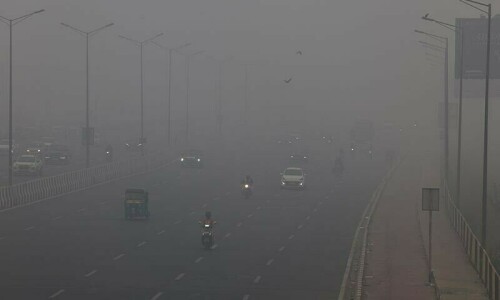TRIPOLI: The leader of the disputed government in Tripoli, Omar al-Hassi, was sacked on Tuesday by the parliament in the Libyan capital, which is under the control of an Islamist-backed militia, a lawmaker said.
“The head of the government was dismissed by the parliament in a vote on Tuesday that was backed by the rest of the ministers,” Mahmoud Abdel Aziz said.
Libya has had two governments and parliaments since Tripoli was seized in August by the Fajr Libya militia coalition and the internationally recognised government fled to the country’s far east.
The militia appointed Hassi in August, but lawmakers in the General National Congress (GNC), the alternative parliament, challenged his leadership and demanded his departure.
Hassi faced criticism for failing to fire ministers accused of corruption.
 |
| Omar al-Hassi, the head of Libya’s self-declared Islamist-backed government.—AFP |
One of his aides, Mohammed Khalifa al-Guwail, has now been tasked with handling the everyday business of the government, according to another parliamentary source.
Libya has been wracked by political turmoil and violence since the 2011 uprising backed by Nato air strikes that ousted and killed dictator Moamer Qadhafi.
The rival parliaments have been holding UN-sponsored talks in Morocco aimed at ending the bloodshed and establishing a provisional government.
Abdel Aziz said the GNC had given the two sides a month in which to reach an agreement.
“If a national unity government is formed within a month, we will support it,” he said. “Failing that, we will name a new head of government”. Last week, the United Nations unveiled proposals that called for a unity government headed by a president and a presidential council of independent figures, along with a parliament and a high state council.
The proposals, also called for creation of a national security council and a municipalities council, while an existing constitutional drafting committee would be part of a mutually agreed transitional period.
Published in Dawn, April 1st, 2015
On a mobile phone? Get the Dawn Mobile App: Apple Store | Google Play
















































Dear visitor, the comments section is undergoing an overhaul and will return soon.